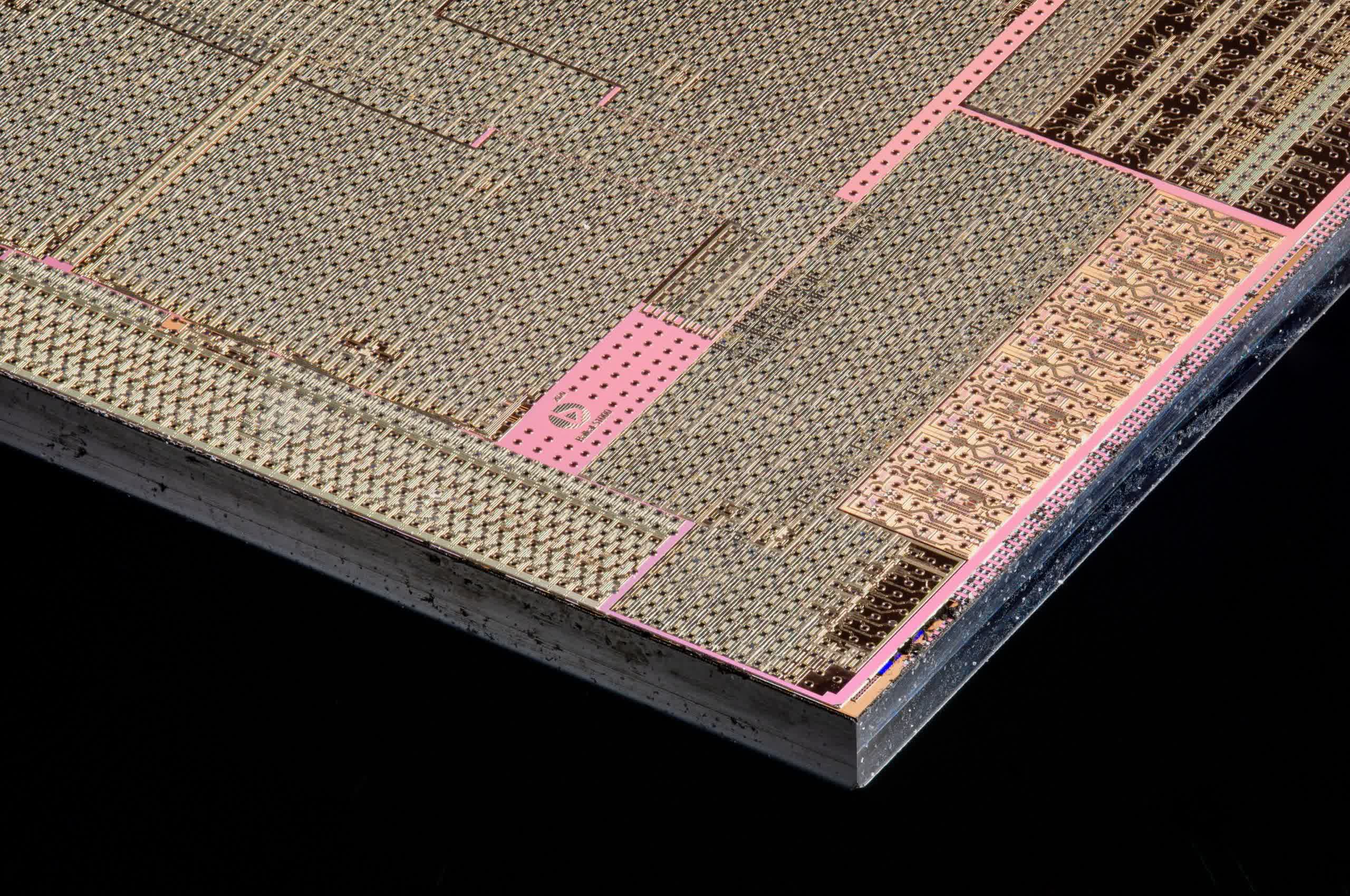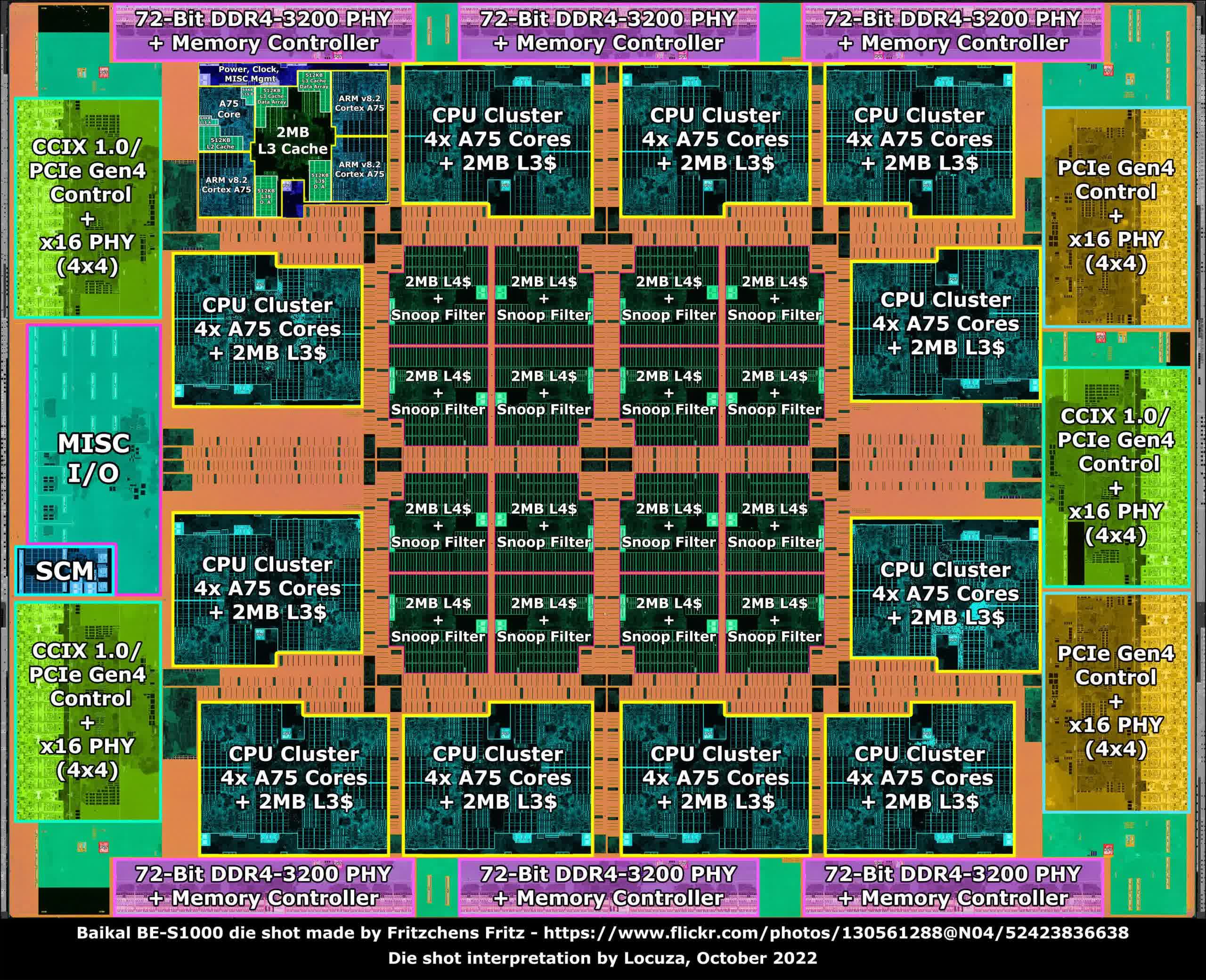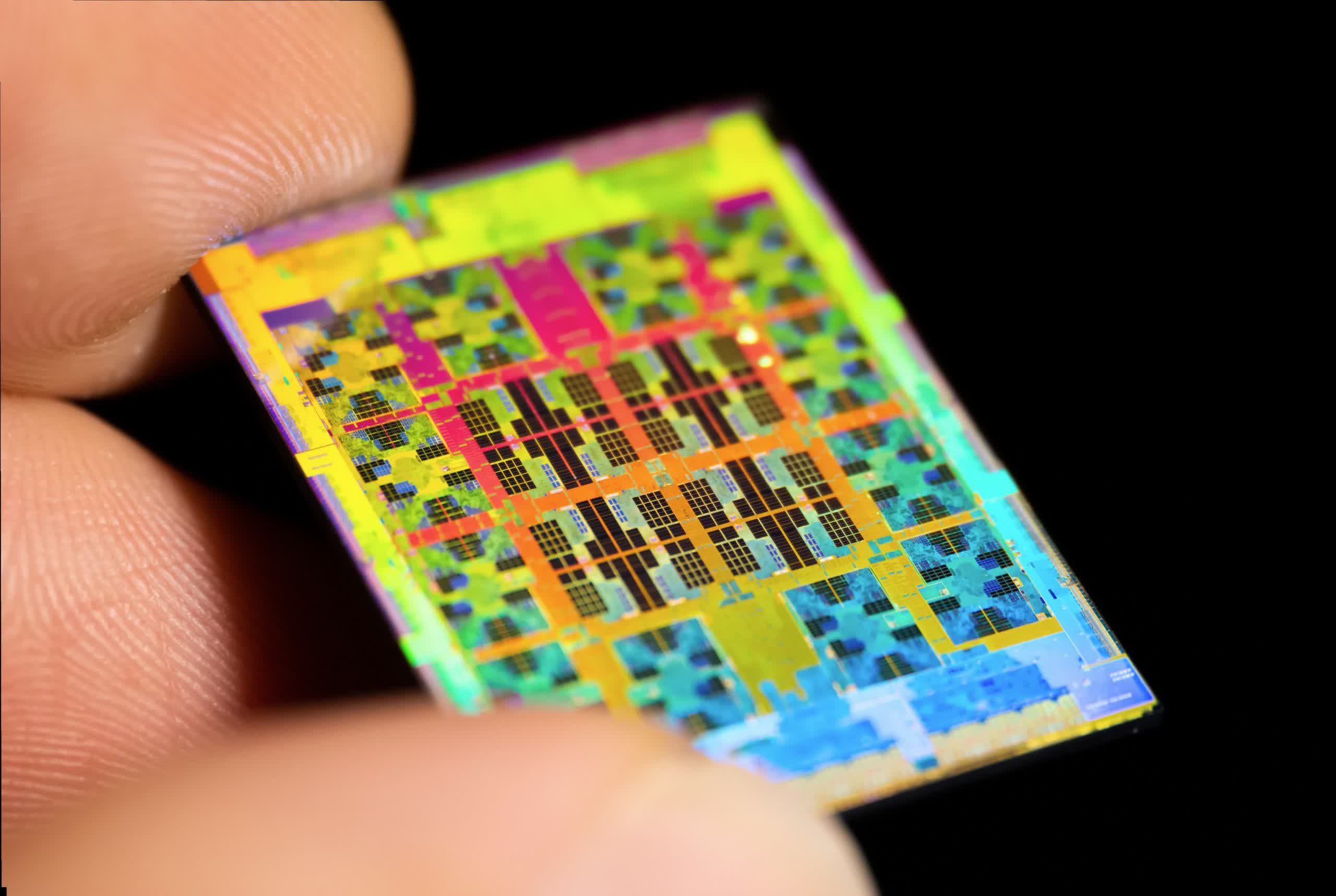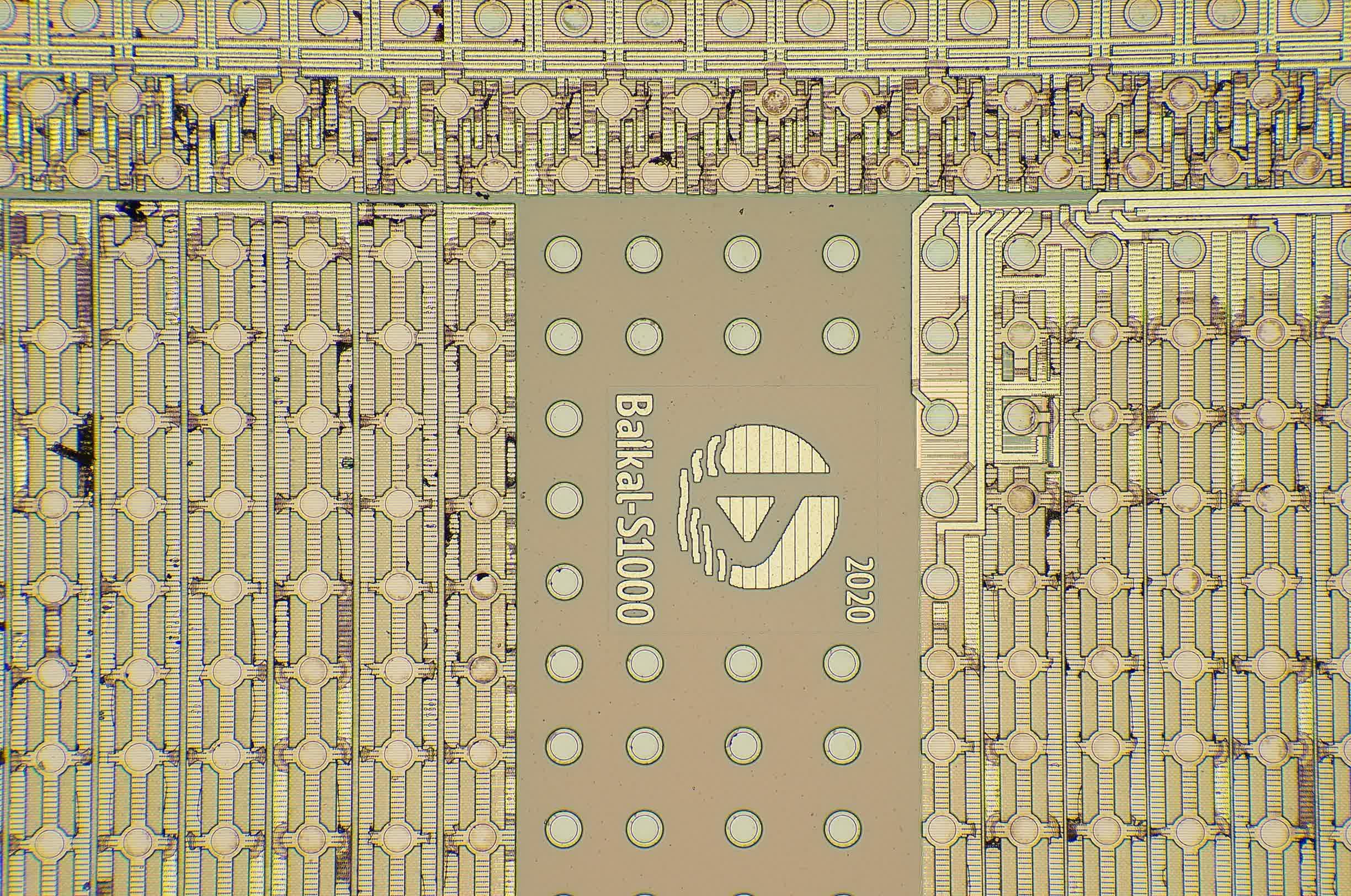In context: Russian chip maker Baikal Electronics was halfway to having an SoC series that spanned from eight cores to 48 before Russia invaded Ukraine and invited sanctions that crippled its nascent semiconductor industry.
But before the sanctions were handed down, Baikal received several prototypes of its latest (and perhaps last) SoC from TSMC. Somehow, some of them have ended up in the hands of a Russian enthusiast who’s shared them with Fritchens Fritz, a tremendously talented chip photographer.

This monstrous system on a chip is the BE-S1000. It was designed for server applications and has 48 Arm Cortex-A75 cores. It features a 2 GHz all-core clock and a 120W TDP. It was manufactured on the TSMC 16FFC node and measures in at an enormous 607 mm2.

In a ring around the center of the SoC are 12 compute clusters that each contain four cores and four 512 KB blocks of L3 cache. Each core contains its own 512 KB of L2 cache and two 64 KB blocks of L1 cache. In the middle of the SoC is a four-by-four grid of 2 MB blocks of L4 cache that sum up to 32 MB. Across the whole processor there are 24 MB of L3 and L2 cache and 6 MB of L1 cache: 86 MB in total, shared between 48 cores.
Around the perimeter are the IO controllers. The left and right flanks house five PCIe 4.0 x16 controllers, three of which can double as CCIX 1.0 modules and enable 2-way and 4-way SMP (symmetric multiprocessing). At the top and bottom are six memory controllers that can each handle a 72-bit channel to 128 GB of DDR4-3200 with ECC, or 768 GB between them.

Baikal backs up that impressive spec sheet with some benchmark figures. It compares the S1000 in a few slides with the 20-core Intel Xeon Gold 6148, 16-core AMD Epyc 7351, and 48-core Huawei Kunpeng 920. It concludes that the SoC is approximately equivalent to the AMD and Intel CPUs but only 85% as fast as Huawei’s rather similar Arm-based SoC.
In raw numbers, the S1000 scores an impressive 14,246 points in the Geekbench 5 multi-core test, putting it on par with the Ryzen 7 5900X. In the SPEC CPU 2017 integer and floating point benchmarks it scores 76.6 points and 68.7 points, respectively, placing it in the territory of the 5800X.

It’s a shame that the S1000 will likely never reach the market. Baikal seems to have had it slated for arrival in Russian markets for either this year or next, but TSMC has almost certainly been forced to cancel or indefinitely delay Baikal’s orders because of the sanctions.
Baikal only took delivery of its first batch of processors from TSMC this time last year. It was just beginning to look like Russia’s bid to have a self-sufficient semiconductor industry could come to fruition within the next decade or two. Now it looks like that future will never come to pass, and all we’re left with are curious oddities like the BE-S1000.



